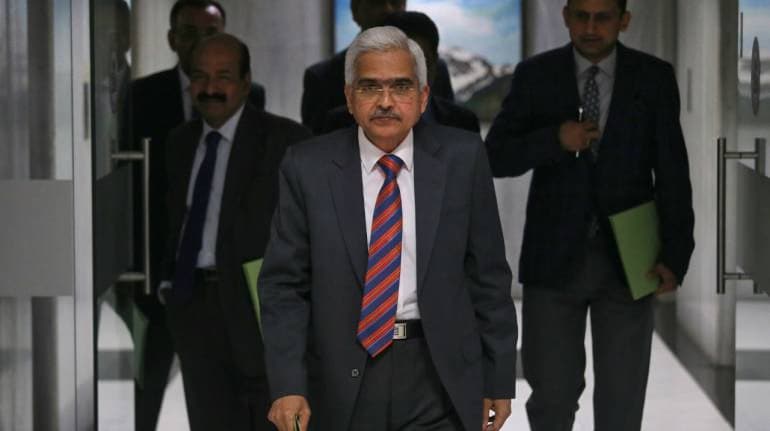February 06, 2020 / 20:20 IST
Piyush Baranwal – Executive Vice President - Senior Fund Manager (Fixed Income), YES AMC.
"Removal of CRR requirement on incremental credit to retail loans for automobiles, residential housing and loans to MSMEs, extension of one-time restructuring scheme for MSME advances and 1-year extension allowed for date of commencement of commercial operations of project loans to commercial real estate should all help alleviate funding woes of these crucial segments of the economy. Similarly, LTROs, new floating rate loans allowed for Medium Enterprises and CRR forbearance on incremental credit to retail loans for automobiles, residential housing and loans to MSMEs should improve monetary transmission to crucial industry segments which are currently struggling. Overall, today’s policy should hopefully help start the virtuous cycle to pull Indian economy out of its current morass," said
February 06, 2020 / 18:38 IST
Ashok Mohanani, Chairman EKTA World and Vice President NAREDCO Maharashtra.
"The overall real estate sector will see stability in terms of investment and purchase behavior. With this the infrastructure prices are likely to remain stagnant which will keep the prices stable for real estate sector. Though the marketers were expecting a cut in the repo rate along with the restructuring in loans after the Union Budget 2020, the unchanged repo rate will have steady growth in the sector at large. Another impetus for homebuyers will be the CRR leeway for existing and incremental loans will help the stimulus package announced,” said
February 06, 2020 / 17:09 IST
Pankaj Bobade, Head- Fundamental Research, Axis Securities.
"Overall, it’s a ‘dovish’ policy, with an expansionary policy stance indicating that the RBI is unlikely to hike rates in the near-term," said
February 06, 2020 / 16:53 IST
Anagha Deodhar, Economist, ICICI Securities.
"Firstly, the RBI announced long term repos in the1 to 3 year window up to Rs 1 trillion. This led to short term yields falling by 15-20 bps and it was as good as a rate cut. Secondly, it announced that banks won’t have to include incremental loans to auto, housing and MSME sectors during Jan-Jul 2020 in their NDTL for CRR calculation. This again is like a marginal and temporary CRR cut and is likely to boost bank credit to the said segments. These measures together are like a stimulus for the economy although the repo rate was kept unchanged,” said
February 06, 2020 / 16:20 IST
said Manju Yagnik, Vice Chairperson Nahar Group and Vice President NAREDCO (Maharashtra)
"The decision to extend the date for commencement of commercial operations with regards to project loans for commercial real estate, would complement the initiatives for the real estate sector taken by the government last year. I would like to add here that RBI had reduced the repo rate by a cumulative 135 basis points in 2019, and it’s important that the central bank ensures proper transmission of the rate cut by banks to reduce the EMI load of the consumers. Not only this, it will also make home loans more accessible for consumers, thereby boosting housing demand. There's also a need to bring in measures to boost credit supply from banks and NBFC sector for developers,”
February 06, 2020 / 16:19 IST
SBI says policy decisions to be beneficial.
Rajnish Kumar, Chairman, SBI said, "The RBI policy is a statement of intent carefully using a repository of policy novelties to address the current delicate balance of growth and inflation. While the decision to keep rates on hold was universally anticipated, the RBI bouquet of developmental and regulatory steps is a positive surprise to the financial ecosystem. The decision to allow Long term repo operations for 1yr and 3yr for total amount of Rs 1 trillion at policy repo rate will bring down cost of funds for banks and will facilitate better transmission within the current constraints of downward rigidity of deposit rates. Exemption of CRR maintenance for all additional loans given for retail loans for automobiles, residential housing, and loans to MSMEs is positive for banks, auto sector, residential housing and MSMEs will also help to lower cost of funds. Extension of date of commencement of commercial operations (DCCO) of project loans for commercial real estate by another one year without downgrading the asset classification will allow the real estate sector to focus on project completion. Extending the date of restructuring of MSME advances will also help the sector to navigate the current business downturn and is a logical corollary of budget announcement.”
February 06, 2020 / 16:08 IST
Murthy Nagarajan, Head - Fixed Income, Tata Asset Management.
"RBI in its press conference, stated policy action will be taken in the second half of the financial year if CPI projection evolves as per their expectations. RBI has also stated its Open Market Operations is done to bring down the corporate bond yields. The objective is to bring the benchmark down and induce banks to lend more.The statement on developmental and regulatory policies has gained importance for the bond market in the present budget. RBI is introducing long term repo in one year and 3-year upto one lakh crores at the current benchmark repo rates. This will give assured liquidity to the banks for extending loans for this tenure. This framework allows banks to invest in short term G sec and corporate bonds and exploit arbitrage opportunities. RBI monetary policy is co ordinating with the budget, with relaxed guidelines for SME and real estate sector, to boost lending and restructure loans to SME and developers."said
February 06, 2020 / 15:46 IST
Markets see upward swing
. The benchmark indices continued its upward momentum for the fourth consecutive day on February 6 with Nifty ended above 12,100 post RBI kept the repo rate unchanged at 5.15 percent.
At close, the Sensex was up 163.37 points at 41,306.03, while Nifty was up 44.50 points at 12,133.70. About 1,366 shares have advanced while1,077 shares declined, and 172 shares are unchanged.IndusInd Bank, Eicher Motors, Zee Entertainment, SBI and Bajaj Finance were among major gainers on the Nifty, while losers were Tata Motors, Cipla, Infosys, Titan Company and ITC.
February 06, 2020 / 15:42 IST
Economists and financial experts have welcomed RBI's widely expected status quo on repo rate, and other announcements to spur economic growth and ensure money supplies effectively.The RBI's MPC kept the key policy rate unchanged at 5.15 per cent. This follows a cumulative 135 basis points (bps) cut in repo rate since February to December 2019.
February 06, 2020 / 15:35 IST
CARE Ratings said that theRBI has indicated that there could be rate cuts going ahead but would be data dependent. It added that in the April policy going by the RBI’s forecast inflation would still be high at 5.45 percentand may not merit this move.
"It is more likely this would be in course of the year as inflation numbers become more favourable. The growth projection for next year is similar to what the Budget and Economic Survey have spoken of; but one may have to wait for the second half to see a more prominent push to growth. We could expect another 25-50 bps rate cut during the course of FY21 which however will be data dependent," said CARE Ratings.
February 06, 2020 / 15:15 IST
Banking stocks jump after RBI decision
Banking stocks, including IndusInd Bank, RBL Bank, State Bank of India and Yes Bank, jumped up to 5 percent in intraday trade on February 6 after the monetary policy outcome of the Reserve Bank of India (RBI).The central bank said it actively engaged in revitalising the flow of bank credit to productive sectors having multiplier effects to support impulses of growth.
February 06, 2020 / 15:11 IST
Sampath Reddy, Chief Investment Officer, Bajaj Allianz Life Insurance said that overall, the policy has been positive for the bond markets with bond yields easing (especially at the shorter end). The RBI recognized that there is monetary policy space for future action, but it will be data–dependent. He said that the yield curve could steepen a bit, with short term yields easing more than long term yields. From an investment perspective we continue to prefer the shorter to medium term part of the yield curve, added Reddy.











